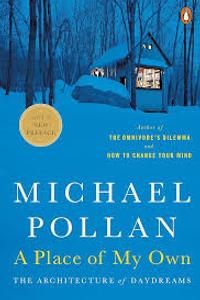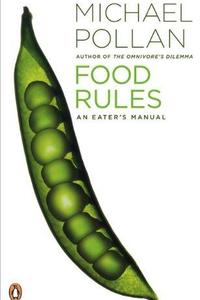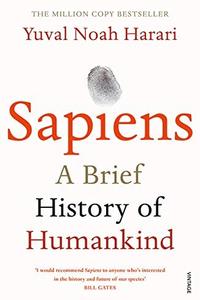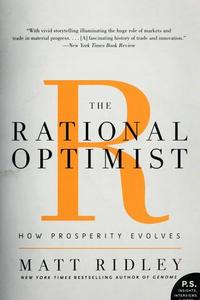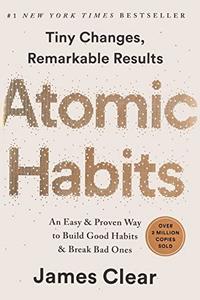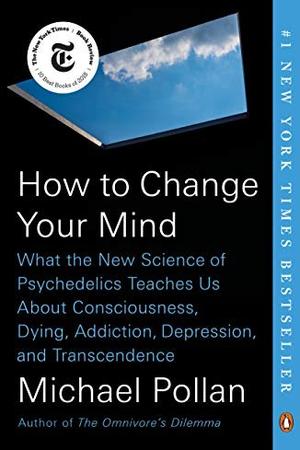
How to Change Your Mind by Michael Pollan: Summary & Notes
by Michael Pollan
In One Sentence
Psychedelics like psilocybin and LSD, long dismissed as dangerous, are showing remarkable therapeutic potential for depression, addiction, and end-of-life anxiety by temporarily dissolving the ego and enabling new perspectives.
Key Takeaways
- Psychedelics work by temporarily quieting the Default Mode Network—the brain's "ego center"
- This "ego dissolution" allows people to see their problems from outside themselves
- Clinical trials show remarkable results for treatment-resistant depression, addiction, and death anxiety
- Set and setting (mindset and environment) dramatically affect the psychedelic experience
- The "mystical experience" correlates strongly with therapeutic benefit
- Psychedelics may help break habitual patterns of thought by increasing brain plasticity
Summary
A fascinating overview of the use and study of psychedelics. Pollan covers everything from the LSD boom and research in the 50s and 60s, to anecdotal accounts of his own trials of psychedelics, to the neuroscience and current studies surrounding the drugs. Great writing as usual from Pollan, and certainly an interesting subject. It’s no secret that use of psychedelics has become more prominent in areas like tech circles and personal performance with the rise of things like micro-dosing. This is the most comprehensive overview on the subject I’ve read. For more information, check out some of the Tim Ferriss Podcast episodes with people like Peter Attia, Stan Grof, Paul Stamets and Hamilton Morris. You can also check out the TV show Hamilton’s Pharmacopeia.
Who Should Read This Book
- Anyone curious about the science of psychedelics
- Mental health professionals interested in emerging therapies
- People struggling with depression, anxiety, or addiction who want to understand new options
- Those interested in consciousness and how the mind works
FAQ
What is the main argument of How to Change Your Mind?
Pollan argues that psychedelics, despite their controversial history, have legitimate therapeutic potential backed by rigorous research. They work by temporarily disrupting the ego and default thinking patterns, allowing people to gain new perspectives on entrenched problems like depression and addiction.
What is the Default Mode Network?
The Default Mode Network is a brain system most active when we're lost in thought, self-reflecting, or ruminating. It's associated with our sense of ego and self. Psychedelics quiet this network, which may explain the "ego dissolution" experience and therapeutic benefits.
📖 Chapter-by-Chapter Breakdown
Click to expand the full detailed notes for every chapter →
📖 Chapter-by-Chapter Breakdown
Click to expand the full detailed notes for every chapter →
Notes
Chapter One - A Renaissance
- Grof began teaching instead something called holotropic breathwork, a technique for inducing a psychedelic state of consciousness without drugs, by means of deep, rapid, and rhythmic breathing, usually accompanied by loud drumming.
- Descriptions of such experiences always sound a little thin, at least when compared with the emotional impact people are trying to convey; for a life-transforming event, the words can seem paltry. When I mentioned this to Richards, he smiled. You have to imagine a caveman transported into the middle of Manhattan. He sees buses, cell phones, skyscrapers, airplanes. Then zap him back to his cave. What does he say about the experience? ‘It was big, it was impressive, it was loud.’ He doesn’t have the vocabulary for ‘skyscraper,’ ‘elevator,’ ‘cell phone.’ Maybe he has an intuitive sense there was some sort of significance or order to the scene. But there are words we need that don’t yet exist. We’ve got five crayons when we need fifty thousand different shades.
- Rather than attempt to define something as difficult to grab hold of as a mystical experience, James offers four marks by which we may recognize one. The first and, to his mind, handiest is ineffability (inability for current vocabulary to properly describe the experience).
- The noetic quality is James’s second mark: "Mystical states seem to those who experience them to be also states of knowledge . . . They are illuminations, revelations full of significance and importance . . . and as a rule they carry with them a curious sense of authority."
- For every volunteer I’ve interviewed, the experience yielded many more answers than questions, and—curiously for what is after all a drug experience—these answers had about them a remarkable sturdiness and durability.
- What was the philosophy professor’s compelling insight?
- "Love conquers all."
- The mystical journey seems to offer a graduate education in the obvious. Yet people come out of the experience understanding these platitudes in a new way; what was merely known is now felt, takes on the authority of a deeply rooted conviction. And, more often than not, that conviction concerns the supreme importance of love.
- This last point James alludes to in his discussion of the third mark of mystical consciousness, which is transiency. For although the mystical state cannot be sustained for long, its traces persist and recur, and from one recurrence to another it is susceptible of continuous development in what is felt as inner richness and importance.
- The fourth and last mark in James’s typology is the essential passivity of the mystical experience. The mystic feels as if his own will were in abeyance, and indeed sometimes as if he were grasped and held by a superior power. This sense of having temporarily surrendered to a superior force often leaves the person feeling as if he or she has been permanently transformed.
- For most of the Hopkins volunteers I interviewed, their psilocybin journeys had taken place ten or fifteen years earlier, and yet their effects were still keenly felt, in some cases on a daily basis
Chapter Two - Natural History
Bemushroomed
- Paul Stamets, a mycologist from Washington State who literally wrote the book on the genus Psilocybe,* in the form of the authoritative 1996 field guide Psilocybin Mushrooms of the World.
Chapter 3 - History
The First Wave
- So, for example, if you have ever read Aldous Huxley’s Doors of Perception, which was published in 1954, your own psychedelic experience has probably been influenced by the author’s mysticism and, specifically, the mysticism of the East to which Huxley was inclined.
Part I: The Promise
Part II: The Crack-Up
- It’s often said that a political scandal is what happens when someone in power inadvertently speaks the truth.
Chapter Four - Travelogue
Journeying Underground
Trip One: LSD
- For some people, the privilege of having had a mystical experience tends to massively inflate the ego, convincing them they’ve been granted sole possession of a key to the universe. This is an excellent recipe for creating a guru. The certitude and condescension for mere mortals that usually come with that key can render these people insufferable.
- I asked him how he could be sure of the purity and quality of the medicines he uses, since they come from chemists working illicitly. Whenever he receives a new shipment, he explained, I first test it for purity, and then I take a heroic dose to see how it feels before I give it to anyone.
- Is a platitude so deeply felt still just a platitude? No, I decided. A platitude is precisely what is left of a truth after it has been drained of all emotion. To resaturate that dried husk with feeling is to see it again for what it is: the loveliest and most deeply rooted of truths, hidden in plain sight.
Trip Two: Psilocybin
- Loaded on my laptop was a brief video of a rotating face mask, used in a psychological test called the binocular depth inversion illusion. As the mask rotates in space, its convex side turning to reveal its concave back, something remarkable happens: the hollow mask appears to pop out to become convex again. This is a trick performed by the mind, which assumes all faces to be convex, and so automatically corrects for the seeming error—unless, as a neuroscientist had told me, one was under the influence of a psychedelic.
- These so-called Bayesian inferences (named for Thomas Bayes, the eighteenth-century English philosopher who developed the mathematics of probability, on which these mental predictions are based) serve us well most of the time, speeding perception while saving effort and energy, but they can also trap us in literally preconceived images of reality that are simply false, as in the case of the rotating mask.
- Yet it turns out that Bayesian inference breaks down in some people: schizophrenics and, according to some neuroscientists, people on high doses of psychedelics drugs, neither of whom “see” in this predictive or conventionalized manner. (Nor do young children, who have yet to build the sort of database necessary for confident predictions.) This raises an interesting question: Is it possible that the perceptions of schizophrenics, people tripping on psychedelics, and young children are, at least in certain instances, more accurate—less influenced by expectation and therefore more faithful to reality—than those of sane and sober adults?
- The sovereign ego, with all its armaments and fears, its backward-looking resentments and forward-looking worries, was simply no more, and there was no one left to mourn its passing. Yet something had succeeded it: this bare disembodied awareness, which gazed upon the scene of the self’s dissolution with benign indifference. I was present to reality but as something other than my self. And although there was no self left to feel, exactly, there was a feeling tone, which was calm, unburdened, content. There was life after the death of the ego. This was big news.
- When I think back on this part of the experience, I’ve occasionally wondered if this enduring awareness might have been the “Mind at Large” that Aldous Huxley described during his mescaline trip in 1953.
- Nothing in my experience led me to believe this novel form of consciousness originated outside me; it seems just as plausible, and surely more parsimonious, to assume it was a product of my brain, just like the ego it supplanted. Yet this by itself strikes me as a remarkable gift: that we can let go of so much—the desires, fears, and defenses of a lifetime!—without suffering complete annihilation. This might not come as a surprise to Buddhists, transcendentalists, or experienced meditators, but it was sure news to me, who has never felt anything but identical to my ego. Could it be there is another ground on which to plant our feet? For the first time since embarking on this project, I began to understand what the volunteers in the cancer-anxiety trials had been trying to tell me: how it was that a psychedelic journey had granted them a perspective from which the very worst life can throw at us, up to and including death, could be regarded objectively and accepted with equanimity.
- I’ve left out one important part of my journey to the underworld: the soundtrack. Before going back under for this last passage, I had asked Mary to please stop playing spa music and put on something classical. We settled on the second of Bach’s unaccompanied cello suites, performed by Yo-Yo Ma. The suite in D minor is a spare and mournful piece that I’d heard many times before, often at funerals, but until this moment I had never truly listened to it.
- Though “listen” doesn’t begin to describe what transpired between me and the vibrations of air set in motion by the four strings of that cello. Never before has a piece of music pierced me as deeply as this one did now. Though even to call it “music” is to diminish what now began to flow, which was nothing less than the stream of human consciousness, something in which one might glean the very meaning of life and, if you could bear it, read life’s last chapter.
- Four hours and four grams of magic mushroom into the journey, this is where I lost whatever ability I still had to distinguish subject from object, tell apart what remained of me and what was Bach’s music. Instead of Emerson’s transparent eyeball, egoless and one with all it beheld, I became a transparent ear, indistinguishable from the stream of sound that flooded my consciousness until there was nothing else in it, not even a dry tiny corner in which to plant an I and observe. Opened to the music, I became first the strings, could feel on my skin the exquisite friction of the horsehair rubbing over me, and then the breeze of sound flowing past as it crossed the lips of the instrument and went out to meet the world, beginning its lonely transit of the universe. Then I passed down into the resonant black well of space inside the cello, the vibrating envelope of air formed by the curves of its spruce roof and maple walls. The instrument’s wooden interior formed a mouth capable of unparalleled eloquence—indeed, of articulating everything a human could conceive. But the cello’s interior also formed a room to write in and a skull in which to think and I was now it, with no remainder.
- It is, I think, precisely this perspective that had allowed so many of the volunteers I interviewed to overcome their fears and anxieties, and in the case of the smokers, their addictions. Temporarily freed from the tyranny of the ego, with its maddeningly reflexive reactions and its pinched conception of one’s self-interest, we get to experience an extreme version of Keats’s “negative capability”—the ability to exist amid doubts and mysteries without reflexively reaching for certainty. To cultivate this mode of consciousness, with its exceptional degree of selflessness (literally!), requires us to transcend our subjectivity or—it comes to the same thing—widen its circle so far that it takes in, besides ourselves, other people and, beyond that, all of nature. Now I understood how a psychedelic could help us to make precisely that move, from the first-person singular to the plural and beyond. Under its influence, a sense of our interconnectedness—that platitude—is felt, becomes flesh. Though this perspective is not something a chemical can sustain for more than a few hours, those hours can give us an opportunity to see how it might go. And perhaps to practice being there.
Trip Three: 5-MeO-DMT (or, The Toad)
- When Huxley speaks of the mind’s reducing valve—the faculty that eliminates as much of the world from our conscious awareness as it lets in—he is talking about the ego. That stingy, vigilant security guard admits only the narrowest bandwidth of reality, a measly trickle of the kind of consciousness which will help us to stay alive. It’s really good at performing all those activities that natural selection values: getting ahead, getting liked and loved, getting fed, getting laid. Keeping us on task, it is a ferocious editor of anything that might distract us from the work at hand, whether that means regulating our access to memories and strong emotions from within or news of the world without.
- What of the world it does admit it tends to objectify, for the ego wants to reserve the gifts of subjectivity to itself.
Graham: key concept: the ego.
- Full of “backward-looking resentments” and “forward-looking fears”.
- “Maddeningly reflexible reactions” and “pinched conception of one’s self-interest”.
- The ego puts the self first, thinking less of our interconnectedness, others, and nature.
- It also forms the mental framework that creates our expectations for ourselves, for others, for our relationships; for how we experience the world.
- Freeing ourselves from our egos allows us to observe things much more clearly, or at least in a different light, with a different perspective.
Chapter Five - The Neuroscience
Your Brain on Psychedelics
- The achievement of an individual self, a being with a unique past and a trajectory into the future, is one of the glories of human evolution, but it is not without its drawbacks and potential disorders. The price of the sense of an individual identity is a sense of separation from others and nature. Self-reflection can lead to great intellectual and artistic achievement but also to destructive forms of self-regard and many types of unhappiness. (In an often-cited paper titled A Wandering Mind Is an Unhappy Mind, psychologists identified a strong correlation between unhappiness and time spent in mind wandering, a principal activity of the default mode network.)
- The more precipitous the drop-off in blood flow and oxygen consumption in the default network, the more likely a volunteer was to report the loss of a sense of self.*
- The mystical experience may just be what it feels like when you deactivate the brain’s default mode network. This can be achieved any number of ways: through psychedelics and meditation, as Robin Carhart-Harris and Judson Brewer have demonstrated, but perhaps also by means of certain breathing exercises (like holotropic breathwork), sensory deprivation, fasting, prayer, overwhelming experiences of awe, extreme sports, near-death experiences, and so on.
- Indeed, that feeling of transparency we associate with ordinary consciousness may owe more to familiarity and habit than it does to verisimilitude. As a psychonaut acquaintance put it to me, If it were possible to temporarily experience another person’s mental state, my guess is that it would feel more like a psychedelic state than a ‘normal’ state, because of its massive disparity with whatever mental state is habitual with you.
- His team at Imperial College has tested volunteers on a standard psychological scale that measures nature relatedness (respondents rate their agreement with statements like I am not separate from nature, but a part of nature). A psychedelic experience elevated people’s scores.
- Synesthesia: when sense information gets cross-wired so that colors become sounds or sounds become tactile.
- In teaching computers how to learn and solve problems, AI designers speak in terms of high temperature and low temperature searches for the answers to questions. A low-temperature search (so-called because it requires less energy) involves reaching for the most probable or nearest-to-hand answer, like the one that worked for a similar problem in the past. Low-temperature searches succeed more often than not. A high-temperature search requires more energy because it involves reaching for less likely but possibly more ingenious and creative answers—those found outside the box of preconception. Drawing on its wealth of experience, the adult mind performs low-temperature searches most of the time.
- Gopnik believes that both the young child (five and under) and the adult on a psychedelic have a stronger predilection for the high-temperature search; in their quest to make sense of things, their minds explore not just the nearby and most likely but the entire space of possibilities. These high-temperature searches might be inefficient, incurring a higher rate of error and requiring more time and mental energy to perform. High-temperature searches can yield answers that are more magical than realistic. Yet there are times when hot searches are the only way to solve a problem, and occasionally they return answers of surpassing beauty and originality. E=mc2 was the product of a high-temperature search.
- Their thinking is less constrained by experience, so they will try even the most unlikely possibilities; that is, they’ll conduct lots of high-temperature searches, testing the most far-out hypotheses. Children are better learners than adults in many cases when the solutions are nonobvious or, as she puts it, further out in the space of possibilities, a realm where they are more at home than we are. Far out, indeed.
- For the well, psychedelics, by introducing more noise or entropy into the brain, might shake people out of their usual patterns of thought—lubricate cognition, in Carhart-Harris’s words—in ways that might enhance well-being, make us more open and boost creativity.
- In Gopnik’s terms, the drugs could help adults achieve the kind of fluid thinking that is second nature to kids, expanding the space of creative possibility. If, as Gopnik hypothesizes, childhood is a way of injecting noise—and novelty—into the system of cultural evolution, psychedelics might do the same thing for the system of the adult mind.
- As for the unwell, the patients who stand to gain the most are probably those suffering from the kinds of mental disorders characterized by mental rigidity: addiction, depression, obsession.
- The experience could work as a kind of reset—as when you introduce a burst of noise into a system that has gotten locked into a rigid pattern.
- Quieting the default mode network and loosening the grip of the ego—which she suggests may be illusory anyway—might also be helpful to such people.
Chapter Six - The Trip Treatment
Psychedelics in Psychotherapy
One: Dying
- In preparation, the two shared with Patrick the set of "flight instructions" written by the Hopkins researcher Bill Richards.
- Bossis suggested that Patrick use the phrase "Trust and let go" as a kind of mantra for his journey. Go wherever it takes you, he advised: "Climb staircases, open doors, explore paths, fly over landscapes." But the most important advice for the journey he offered is always to move toward, rather than try to flee, anything truly threatening or monstrous you encounter—look it straight in the eyes. "Dig in your heels and ask, ‘What are you doing in my mind?’ Or, ‘What can I learn from you?’"
- In fact, the evidence for the existence of consciousness is much like the evidence for the reality of the mystical experience: we believe it exists not because science can independently verify it but because a great many people have been convinced of its reality; here, too, all we have to go on is the phenomenology.
- In both the NYU and the Hopkins trials, some 80 percent of cancer patients showed clinically significant reductions in standard measures of anxiety and depression, an effect that endured for at least six months after their psilocybin session. In both trials, the intensity of the mystical experience volunteers reported closely correlated with the degree to which their symptoms subsided. Few if any psychiatric interventions of any kind have demonstrated such dramatic and sustained results.
- By temporarily disabling the ego, psilocybin seems to open a new field of psychological possibility, symbolized by the death and rebirth reported by many of the patients I interviewed. At first, the falling away of the self feels threatening, but if one can let go and surrender, powerful and usually positive emotions flow in—along with formerly inaccessible memories and sense impressions and meanings. No longer defended by the ego, the gate between self and other—Huxley’s reducing valve—is thrown wide open. And what comes through that opening for many people, in a great flood, is love. Love for specific individuals, yes, but also, as Patrick Mettes came to feel (to know!), love for everyone and everything—love as the meaning and purpose of life, the key to the universe, and the ultimate truth.
- Bertrand Russell wrote that the best way to overcome one’s fear of death "is to make your interests gradually wider and more impersonal, until bit by bit the walls of the ego recede, and your life becomes increasingly merged in the universal life." He goes on:
- An individual human existence should be like a river: small at first, narrowly contained within its banks, and rushing passionately past rocks and over waterfalls. Gradually, the river grows wider, the banks recede, the waters flow more quietly, and in the end, without any visible break, they become merged in the sea, and painlessly lose their individual being.
Two: Addiction
- The study was tiny and not randomized, but the results were nevertheless striking, especially when you consider that smoking is one of the most difficult addictions to break—harder, some say, than heroin. Six months after their psychedelic sessions, 80 percent of the volunteers were confirmed as abstinent; at the one-year mark, that figure had fallen to 67 percent, which is still a better rate of success than the best treatment now available. (A much larger randomized study, comparing the effectiveness of psilocybin therapy with the nicotine patch, is currently under way.) As in the cancer-anxiety studies, the volunteers who had the most complete mystical experiences had the best outcomes; they were, like Charles Bessant, able to quit smoking.
- The key, in his view, is their power to occasion a sufficiently dramatic experience to "dope-slap people out of their story. It’s literally a reboot of the system—a biological control-alt-delete. Psychedelics open a window of mental flexibility in which people can let go of the mental models we use to organize reality."
- In his view, the most important such model is the self, or ego, which a high-dose psychedelic experience temporarily dissolves. He speaks of "our addiction to a pattern of thinking with the self at the center of it."
- "So much of human suffering stems from having this self that needs to be psychologically defended at all costs. We’re trapped in a story that sees ourselves as independent, isolated agents acting in the world. But that self is an illusion. It can be a useful illusion, when you’re swinging through the trees or escaping from a cheetah or trying to do your taxes. But at the systems level, there is no truth to it. You can take any number of more accurate perspectives: that we’re a swarm of genes, vehicles for passing on DNA; that we’re social creatures through and through, unable to survive alone; that we’re organisms in an ecosystem, linked together on this planet floating in the middle of nowhere. Wherever you look, you see that the level of interconnectedness is truly amazing, and yet we insist on thinking of ourselves as individual agents." Albert Einstein called the modern human’s sense of separateness "a kind of optical delusion of his consciousness.”*
- Dying, depression, obsession, eating disorders—all are exacerbated by the tyranny of an ego and the fixed narratives it constructs about our relationship to the world.
- Now comes a class of chemicals that may have the power to change how we experience our personal history and environment, no matter how impoverished or painful they may be. "Do you see the world as a prison or a playground?" is the key question Matt Johnson takes away from the rat park experiment.
- If addiction represents a radical narrowing of one’s perspective and behavior and emotional repertoire, the psychedelic journey has the potential to reverse that constriction, open people up to the possibility of change by disrupting and enriching their interior environment.
- An experience of awe appears to be an excellent antidote for egotism.
- As Keltner has written, the overwhelming force and the mystery of awe are such that the experience can’t readily be interpreted according to our accustomed frames of thought. By rocking those conceptual frameworks, awe has the power to change our minds.
Three: Depression
- Watts’s interviews uncovered two “master" themes.
- The first was that the volunteers depicted their depression foremost as a state of “disconnection," whether from other people, their earlier selves, their senses and feelings, their core beliefs and spiritual values, or nature. Several referred to living in "a mental prison," others to being stuck in endless circles of rumination they likened to mental “gridlock." I was reminded of Carhart-Harris’s hypothesis that depression might be the result of an overactive default mode network—the site in the brain where rumination appears to take place.
- The Imperial depressives also felt disconnected from their senses. I would look at orchids, one told Watts, and intellectually understand that there was beauty, but not experience it.
- The second master theme was a new access to difficult emotions, emotions that depression often blunts or closes down completely. Watts hypothesizes that the depressed patient’s incessant rumination constricts his or her emotional repertoire. In other cases, the depressive keeps emotions at bay because it is too painful to experience them.
- Robin Carhart-Harris’s theory of the entropic brain represents a promising elaboration on this general idea, and a first stab at a unified theory of mental illness that helps explain all three of the disorders we’ve examined in these pages.
- A happy brain is a supple and flexible brain, he believes; depression, anxiety, obsession, and the cravings of addiction are how it feels to have a brain that has become excessively rigid or fixed in its pathways and linkages—a brain with more order than is good for it.
- The therapeutic value of psychedelics, in Carhart-Harris’s view, lies in their ability to temporarily elevate entropy in the inflexible brain, jolting the system out of its default patterns.
- The default mode network appears to be the seat not only of the ego, or self, but of the mental faculty of time travel as well. The two are of course closely related: without the ability to remember our past and imagine a future, the notion of a coherent self could hardly be said to exist; we define ourselves with reference to our personal history and future objectives.
- The usual antonym for the word spiritual is material. That at least is what I believed when I began this inquiry—that the whole issue with spirituality turned on a question of metaphysics. Now I’m inclined to think a much better and certainly more useful antonym for spiritual might be egotistical.
- When the ego dissolves, so does a bounded conception not only of our self but of our self-interest. What emerges in its place is invariably a broader, more openhearted and altruistic—that is, more spiritual—idea of what matters in life. One in which a new sense of connection, or love, however defined, seems to figure prominently.
- Buddhists believe that attachment is at the root of all forms of mental suffering; if the neuroscience is right, a lot of these attachments have their mooring in the PCC, where they are nurtured and sustained.
- Brewer thinks that by diminishing its activity, whether by means of meditation or psychedelics, we can learn to be with our thoughts and cravings without getting caught up in them. Achieving such a detachment from our thoughts, feelings, and desires is what Buddhism (along with several other wisdom traditions) teaches is the surest path out of human suffering.
Epilogue: In Praise of Neural Diversity
- For me, the psychedelic experience opened a door to a specific mode of consciousness that I can now occasionally recapture in meditation. I’m speaking of a certain cognitive space that opens up late in a trip or in the midst of a mild one, a space where you can entertain all sorts of thoughts and scenarios without reaching for any kind of resolution.
- Just because the psychedelic journey takes place entirely in one’s mind doesn’t mean it isn’t real. It is an experience and, for some of us, one of the most profound a person can have. As such, it takes its place as a feature in the landscape of a life. It can serve as a reference point, a guidepost, a wellspring, and, for some, a kind of spiritual sign or shrine.
Glossary
- Noetic quality: A term introduced by William James, an American psychologist, to denote the fact that the mystical state registers not only as a feeling but as a state of knowledge.
- People emerge with the enduring conviction that important truths have been revealed to them.
- The noetic quality was, for James, one of the four marks of the mystical experience, along with ineffability, transiency, and passivity.
- For crucial research assistance along the way, as well as their indispensable online library, I’m deeply grateful to Earth and Fire, the proprietors of Erowid, which is the single most important resource on psychedelics there is. Check it out.
